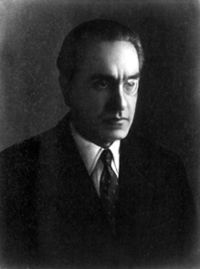
In this important study of the meaning of the Grail, one of Europe's greatest esoteric philosophers discloses the pre-Christian and initiatic sources of this symbolic motif that is so central to Western mythology and culture. He demonstrates how the main features of the legend are from an older tradition analogous to the great heroic sagas and cycles of the North, and that the Grail itself is a symbol of initiation. Evola uncovers the hidden meaning in the often surreal adventures of the knights who searched for the Grail, interpreting them as inner experiences and tests for the seeker. He also explores the history of the myth in the Middle Ages, its use by the Knights Templar and the Cathars, its legacy during the decline of the Holy Roman Empire, and its links with Rosicrucianism, alchemy, and Masonry. This excursion into the realm of the Grail throws new light on an endlessly fascinating subject.
Author

Julius Evola (19 May 1898 – 11 June 1974), born Giulio Cesare Andrea Evola, was an Italian philosopher and esoteric scholar. Born in Rome to a family of the Sicilian landed gentry, Evola was raised a strict Catholic. Despite this, his life was characterised by 'an anti-bourgeois approach' hostile to both 'the dominant tradition of the West—Christianity and Catholicism—and to contemporary civilization—the 'modern world' of democracy and materialism'. By turns 'engineering student, artillery officer, Dadaist poet and painter, journalist, alpinist, scholar, linguist, Orientalist, and political commentator', he has been described as a 'rare example of universality in an age of specialization'. Yet behind it all lay a singular emphasis on, and pursuit of, a 'direct relationship to the Absolute'. For Evola, 'the center of all things was not man, but rather the Transcendent.' This metaphysical conviction can be seen to have determined both Evola's stance on socio-political issues, and his antipathetic attitude towards 'all professional, sentimental and family routines'. The author of many books on esoteric, political and religious topics (including The Hermetic Tradition, The Doctrine of Awakening and Eros and the Mysteries of Love), his best-known work remains Revolt Against the Modern World, a trenchant critique of modern civilisation that has been described as 'the gateway to his thought'. Since his death, also in Rome, his writings have influenced right-wing, reactionary and conservative political thought not only in his native Italy, but throughout continental Europe and, increasingly, the English-speaking world. Nevertheless, he should not be considered primarily as a political thinker, but rather as an exponent of the wider Traditionalist School that encompasses the work of such individuals as René Guénon, Titus Burckhardt and Frithjof Schuon.